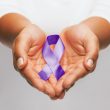For Victims of Domestic Violence, Chicago & Illinois Organizations Offer Help and Hope
January 7, 2019
The numbers are shocking and appalling. One in three women in the United States and one in four men have experienced some form of physical violence at the hands of an intimate partner, according to the Social Impact Research Center. “On a typical day,” the research center says, “domestic violence hotlines receive approximately 21,000 calls, an average of close to 15 calls every minute.”
All too often, victims of domestic violence feel isolated, alone, and unsure of how to protect themselves and their children. Fortunately, as more light is being shed on the dark secrets of domestic violence, there are now many organizations and resources available to assist victims and offer them help and hope. An extensive list of domestic violence organizations in Chicago and Illinois can be found on the website for The Domestic Violence & Mental Health Policy Initiative. DVMHPI is a Chicago-based project founded in 1999 that works to address the mental health needs of domestic violence survivors and their children. Their goal is to help domestic violence victims overcome the trauma of abuse.
Here are just a few of the Chicago and Illinois organizations suggested by DVMPHI. Nearly all of their services are offered at no charge.
A Safe Place (Zion, IL)
A Safe Place is the sole provider of services exclusively addressing domestic violence in Lake County, Illinois. A Safe Place assists victims in transforming their lives after domestic violence, preventing future abuse by addressing its root cause through abuser intervention programs, and educating the community about domestic violence.
Apna Ghar (Chicago, IL – North Side)
Apna Ghar provides emergency shelter and transitional housing, along with a range of supportive services, to survivors of domestic abuse in the Chicago area. All services are free and available to survivors regardless of race, religion, ethnic origin, or socioeconomic status. A large proportion of Apna Ghar’s clients are immigrants from India, Pakistan and other Asian and African countries.
Between Friends (formerly Friends of Battered Women and Their Children) (Chicago, IL – North Side)
Between Friends’ programs and services include a toll-free Crisis Line (800-603-HELP), direct crisis intervention services for individuals and families, counseling for victims and their children, court advocacy, and prevention and education efforts, including healthcare education and an extensive teen dating violence prevention program.
Illinois Department of Human Services Bureau of Domestic and Sexual Violence Prevention
The Bureau of Domestic & Sexual Violence Prevention helps survivors get access to safety, medical care, crisis support, legal advocacy and counseling services.
Sarah’s Inn (Oak Park, IL)
Sarah’s Inn provides a broad range of comprehensive services in the areas of safety, prevention, intervention, advocacy, education and support.
Turning Point (Woodstock, IL)
Turning Point offers these programs and services: 24-hour Crisis Intervention and Response, Emergency Shelter, Individual and Group Counseling, Trauma-Based Mental Health Services, Children’s Individual and Group Counseling, Partner Abuse Intervention Program (PAIP), Adolescent Alternatives, Parenting Program, Latino Bilingual/Bicultural Services, Legal and Non-Legal Advocacy, Information and Referral, Prevention and Community Education, and Emergency Food and Clothing Pantries.
Understandably, many victims of domestic violence are reluctant to seek help. They may be embarrassed and afraid. However, the National Center on Domestic Violence, Trauma & Mental Health (an initiative of DVMPHI) offers this encouraging advice: “Domestic violence advocates can offer you support, help you to plan for your safety, and connect you with resources in your community. An advocate may also be able to help you ask the court for an order of protection and refer you to an attorney who can help you file for divorce and petition for custody of your children and child support. Many domestic violence programs offer support groups where you can talk with other people who have experienced abuse by a partner.”


